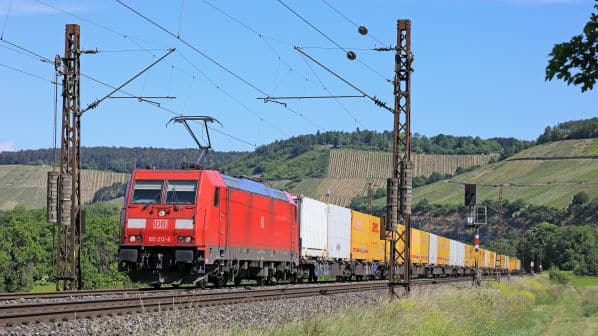THE European Commission (EC) has approved a €1.1bn German scheme to compensate operators using electric traction following the recent spike in electricity prices.
The EC says the measure will contribute to ensuring that the rail sector remains competitive while preserving the environmental performance of electric rail, in line with the objectives of the commission’s Sustainable and Smart Mobility Strategy and the European Green Deal.
Germany notified the EC of its intention to introduce the programme to support freight and passenger operators by covering part of the additional electricity cost experienced due to the exceptional increases in electricity prices following Russia’s war against Ukraine. In doing so, the scheme aims to support and preserve modal shift from road to rail transport using electric traction, promoting a greener means of transport.
Under the scheme, the aid will take the form of monthly reductions in the freight and passenger rail transport operators’ electricity bills. Electricity suppliers will then be reimbursed by the German state only for the economic support provided to the operators.
The scheme will cover electricity consumed in 2023.
The EC assessed the measure under EU State aid rules and the 2008 Guidelines on State aid for operators, and found that the scheme is beneficial for the environment and mobility; necessary and appropriate; proportionate; and limited to reducing the competitive disadvantages faced by rail transport using electric traction compared with road transport.
On this basis, the Commission approved the German scheme under EU State aid rules.
The measure will be managed by the Federal Ministry for Economic Affairs and Climate Action with the assistance of electricity suppliers. The national legal basis of the measure is the Electricity Price Brake Law.
The EC has already approved aid granted under the same German legal basis to other sectors for increased electricity prices under the temporary crisis framework on December 21 2022.
“This €1.1bn scheme will enable Germany to support electric traction, which is a more environmentally friendly mode of rail transport compared with diesel-fuelled vehicles,” says executive vice-president in charge of competition policy, Ms Margrethe Vestager. “It will help Germany meet its European Green Deal objectives, while reducing the burden of rising electricity costs for transport operators, to the benefit of passengers and freight customers.”
An analysis of how Europe’s energy crises is affected operators from IRJ Editor in Chief Kevin Smith appeared in the October issue of IRJ. Digital subscribes can read it here.

